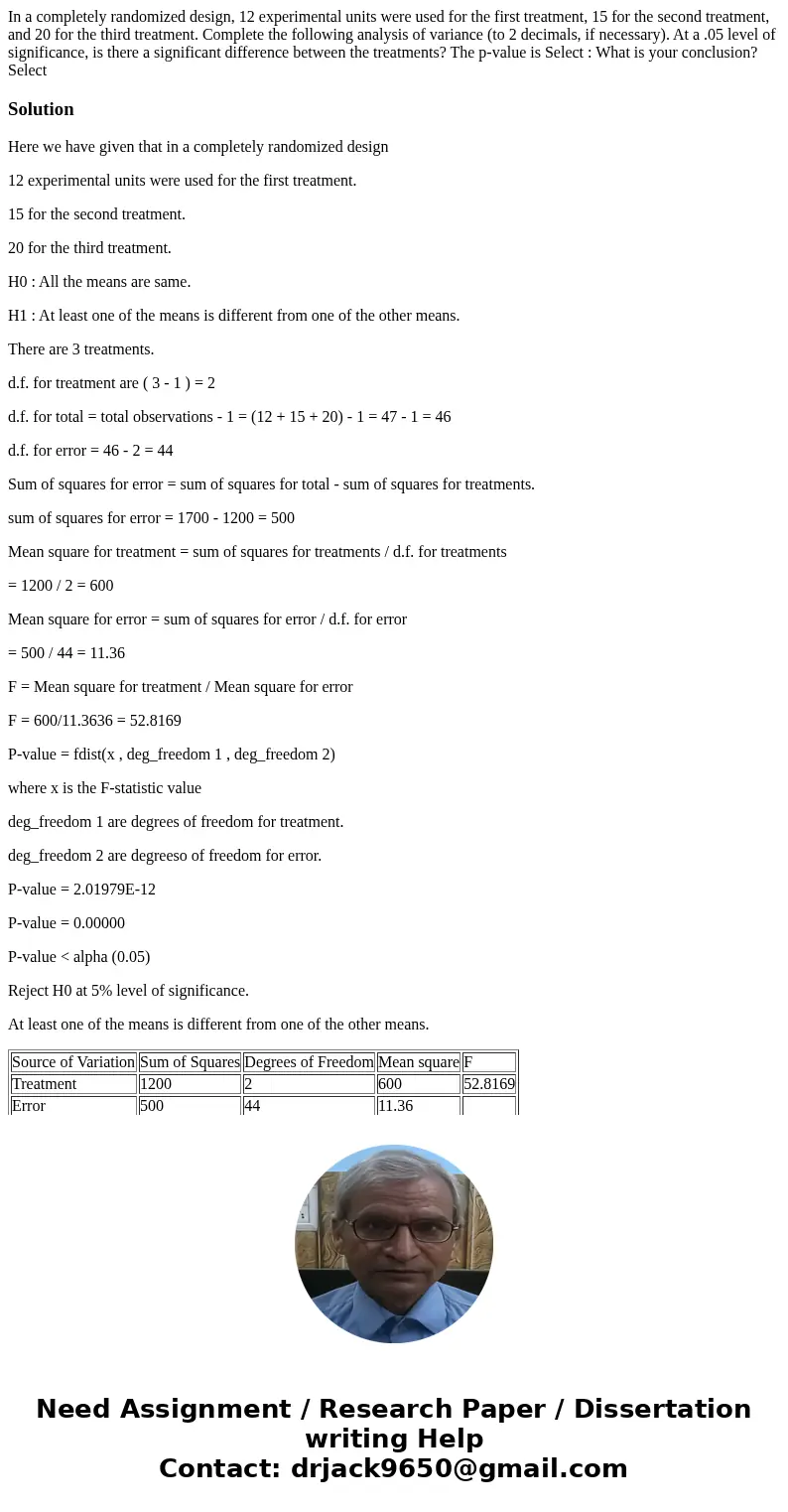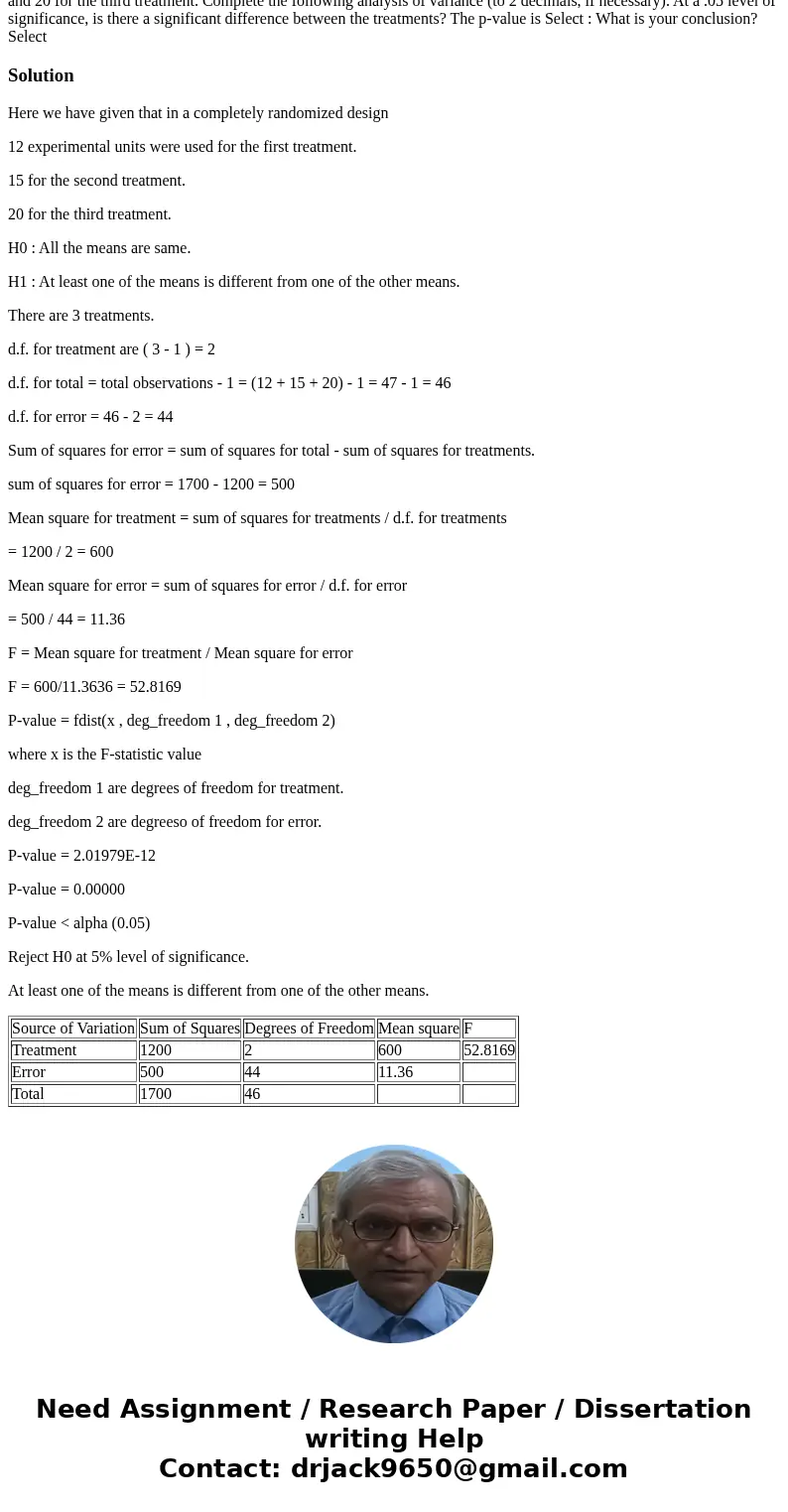In a completely randomized design 12 experimental units were
Solution
Here we have given that in a completely randomized design
12 experimental units were used for the first treatment.
15 for the second treatment.
20 for the third treatment.
H0 : All the means are same.
H1 : At least one of the means is different from one of the other means.
There are 3 treatments.
d.f. for treatment are ( 3 - 1 ) = 2
d.f. for total = total observations - 1 = (12 + 15 + 20) - 1 = 47 - 1 = 46
d.f. for error = 46 - 2 = 44
Sum of squares for error = sum of squares for total - sum of squares for treatments.
sum of squares for error = 1700 - 1200 = 500
Mean square for treatment = sum of squares for treatments / d.f. for treatments
= 1200 / 2 = 600
Mean square for error = sum of squares for error / d.f. for error
= 500 / 44 = 11.36
F = Mean square for treatment / Mean square for error
F = 600/11.3636 = 52.8169
P-value = fdist(x , deg_freedom 1 , deg_freedom 2)
where x is the F-statistic value
deg_freedom 1 are degrees of freedom for treatment.
deg_freedom 2 are degreeso of freedom for error.
P-value = 2.01979E-12
P-value = 0.00000
P-value < alpha (0.05)
Reject H0 at 5% level of significance.
At least one of the means is different from one of the other means.
| Source of Variation | Sum of Squares | Degrees of Freedom | Mean square | F |
| Treatment | 1200 | 2 | 600 | 52.8169 |
| Error | 500 | 44 | 11.36 | |
| Total | 1700 | 46 |


 Homework Sourse
Homework Sourse